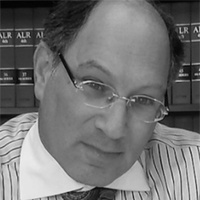Towson Criminal Lawyer, Maryland, page 3
Sponsored Law Firm
-
 x
x

Click For More Info:
-
Isaac Klein Attorney at Law
1 N Charles Street Suite 350 Baltimore, MD 21201» view mapAccident & Injury Law You Need Isaac To Defend You!
Issac Klein has been serving the citizens of Maryland since opening his practice in 1982. If your claim cannot be settled for a fair amount, he can prepare to file suit and go to trial.
800-768-4560
John Grason Turnbull
DUI-DWI, Criminal, Personal Injury, Medical Malpractice, Car Accident
Status: In Good Standing
Patrick Erney Maher
Military & Veterans Appeals, Landlord-Tenant, Traffic, DUI-DWI, Criminal
Status: In Good Standing Licensed: 35 Years
Eugene L Miles
Litigation, Divorce & Family Law, DUI-DWI, Disability, Accident & Injury
Status: In Good Standing
Richard C Burch
Litigation, Lawsuit & Dispute, Divorce & Family Law, Criminal
Status: In Good Standing
 Isaac Klein Baltimore, MD
Isaac Klein Baltimore, MD Practice AreasExpertise
Practice AreasExpertise
